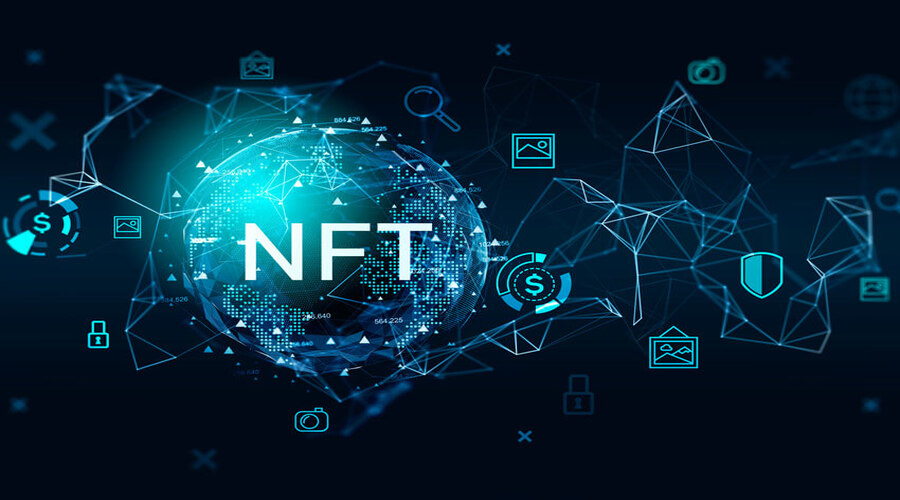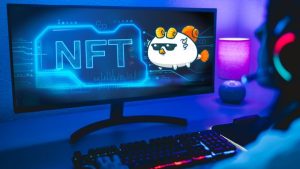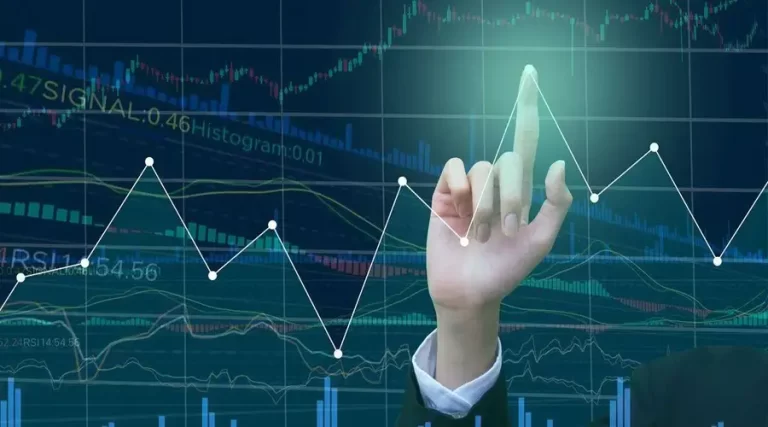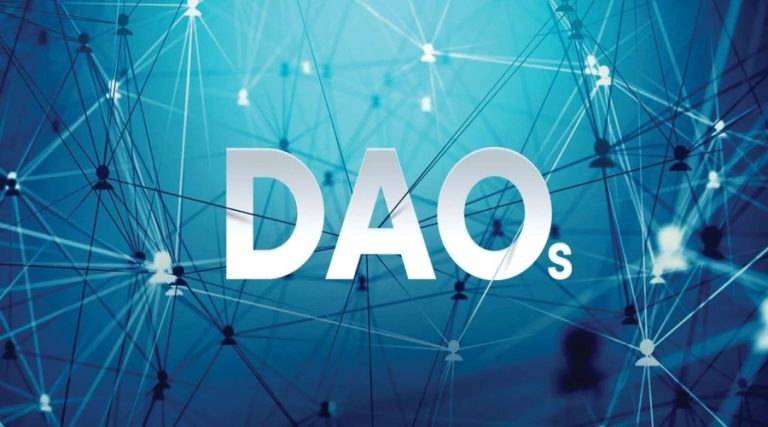
The Rise of NFT-based In-Game Economies
Introduction
The world of gaming is evolving rapidly, and one of the most significant developments in recent years has been the rise of NFT-based in-game economies. Non-Fungible Tokens (NFTs) have gained considerable popularity, and their integration into video games has opened up new possibilities for players and developers alike.
What are NFTs?
NFTs represent unique assets that can be bought, sold, and traded on various blockchain platforms. Each NFT possesses distinct characteristics, making it one-of-a-kind and irreplaceable. These tokens can represent a wide range of digital and physical assets, including artwork, music, virtual real estate, and now, in-game items.
The Gaming Industry and In-Game Economies
In-game economies have been a staple in many multiplayer games, allowing players to trade virtual assets, earn in-game currency, and participate in virtual marketplaces. However, the integration of NFTs into games has revolutionized the concept of digital ownership within these economies.
The Emergence of NFT-based In-Game Economies

NFT-based in-game economies have gained traction due to their ability to provide true ownership and value to players. These economies allow players to buy, sell, and trade NFT-based virtual assets directly, both within and outside the game environment. This newfound ownership has sparked a surge in interest as players now have the opportunity to truly invest in their gaming experience.
Benefits of NFT-based In-Game Economies
1. Authenticity and Ownership
NFT-based in-game economies ensure authenticity and ownership by storing ownership information on the blockchain. This eliminates reliance on centralized servers and empowers players with complete control over their virtual assets.
2. Tradable Virtual Assets
NFT-based in-game economies enable players to trade their virtual assets directly with other players or on blockchain marketplaces. This peer-to-peer trading ecosystem opens up new avenues for players to monetize their skills and investments within the game.
3. Economic Opportunities for Players
NFT-based in-game economies have the potential to generate real-world economic opportunities for players. Skilled players can earn income by participating in in-game activities, such as tournaments or competitions, where valuable NFTs can be won or sold. Additionally, players can become entrepreneurs by creating and selling their own unique NFT-based virtual assets, contributing to a vibrant and dynamic gaming ecosystem.
Examples of NFT-based In-Game Economies
1. Axie Infinity
Axie Infinity is a blockchain-based game that combines elements of Pokemon and Tamagotchi. Players can collect, breed, and battle virtual creatures called Axies, with each Axie represented as an NFT. The game’s vibrant marketplace allows players to buy, sell, and trade Axies, creating a thriving in-game economy.
2. Decentraland
Decentraland is a virtual reality platform built on the Ethereum blockchain. It allows users to explore a decentralized virtual world, own virtual land, and create and trade unique virtual assets. The ownership of land parcels and virtual assets in Decentraland is facilitated through NFTs, enabling users to monetize their creations and participate in a virtual economy.
3. Cryptokitties
Cryptokitties became a viral sensation in 2017 as one of the first games to utilize NFTs. Players can collect and breed unique virtual cats, each represented as an NFT. The scarcity and desirability of rare traits led to a frenzy of buying and selling, with some Cryptokitties fetching exorbitant prices in the secondary market.
Challenges and Concerns
1. Environmental Impact
The energy consumption associated with blockchain technology has raised concerns about the environmental sustainability of NFTs. Addressing these concerns becomes crucial for the long-term viability of NFT-based in-game economies.
2. Regulatory Issues
The legal and regulatory landscape surrounding NFTs is still evolving. Clarity and appropriate regulations are essential to protect consumers and prevent fraudulent activities in NFT-based in-game economies.
3. Scams and Fraudulent Activities
The popularity of NFTs has attracted scammers and fraudsters. Raising awareness and implementing security measures are essential to safeguard the integrity of NFT-based in-game economies.
The Future of NFT-based In-Game Economies
As blockchain technology continues to mature and scalability improves, we can expect even more immersive and economically viable gaming experiences. Developers will explore innovative ways to leverage NFTs, creating unique and engaging gameplay mechanics that blur the lines between virtual and real-world economies.
Integration with Real-world Assets
The integration of NFT-based in-game economies with real-world assets has the potential to revolutionize the way we perceive and interact with both digital and physical possessions. Tokenization, the process of converting real-world assets into digital tokens, allows for increased liquidity and accessibility. This opens up exciting possibilities for players to own and trade virtual representations of tangible assets such as real estate, artwork, or collectibles within the game environment.
With tokenization, players can have a direct stake in real-world assets, breaking down barriers to entry and enabling fractional ownership. For example, players could collectively invest in a virtual representation of a luxury property and receive proportional returns from its appreciation or rental income. This democratization of access to traditionally exclusive assets empowers individuals to participate in markets that were previously out of reach.
Moreover, the integration of real-world assets into NFT-based in-game economies enhances the sense of ownership and authenticity. Blockchain technology ensures transparent and immutable ownership records, eliminating concerns of counterfeit items or ownership disputes. Players can confidently trade and invest in virtual representations of real-world assets, knowing that their ownership rights are securely recorded on the blockchain.
Social Impact and Community-driven Projects
NFT-based in-game economies have not only transformed the gaming industry but also created opportunities for social impact and community-driven initiatives. Players and developers are leveraging the power of these economies to drive positive change and support social causes.
Philanthropic efforts within NFT-based in-game economies have gained momentum. Projects allocate a portion of the proceeds from NFT sales to charitable organizations or specific social causes. By purchasing and trading these NFTs, players can actively contribute to philanthropic efforts and make a difference in the real world through their gaming activities.
Additionally, the rise of player-driven content creation has fostered a sense of community and collaboration. Platforms and projects enable players to create, share, and monetize their own game assets, modifications, or experiences. This decentralized approach to content creation allows for diverse and innovative contributions from players worldwide. Through collaborative efforts, players are shaping the future of gaming, blurring the line between developers and players.
Community-driven governance has also emerged within NFT-based in-game economies. Players have a say in the decision-making processes of the game, including the development roadmap, rules, and economic systems. By participating in voting and governance mechanisms, players can collectively shape the direction and evolution of the game. This inclusive approach fosters a sense of ownership, engagement, and trust within gaming communities.
The Role of Blockchain Technology
Blockchain technology plays a pivotal role in enabling the seamless functionality and security of NFT-based in-game economies. Through the use of blockchain, transparency and immutability are achieved, ensuring the authenticity and ownership of virtual assets.
One key advantage of blockchain technology is the transparent and decentralized nature of ownership records. Each transaction and transfer of an NFT is recorded on the blockchain, providing a transparent history of ownership. This eliminates doubts about the authenticity and provenance of virtual assets, mitigating concerns of fraud, counterfeiting, or unauthorized duplication.
Blockchain-based ownership records also remove the need for intermediaries or centralized databases. Traditionally, players had to trust game developers or centralized servers to maintain accurate ownership information. With blockchain, ownership is verified and recorded through a decentralized network of nodes, enhancing security and eliminating the reliance on a single point of failure.
Furthermore, blockchain technology enables community governance and voting mechanisms within NFT-based in-game economies. By leveraging smart contracts and decentralized protocols, players can actively participate in decision-making processes. This decentralized governance approach ensures fairness, transparency, and inclusivity, allowing players to have a direct impact on the development and evolution of the game and its economy.
The integration of blockchain technology within NFT-based in-game economies enhances the overall trust, security, and authenticity of virtual assets, paving the way for a new era of digital ownership and immersive gaming experiences.
17. Gaming Communities and Social Interaction
Engaging Player Communities:
- Importance of gaming communities in NFT-based in-game economies
- Formation of friendships, teams, and social bonds within gaming communities
- Channels for social interaction, such as in-game chat systems, forums, and social media groups
- Sharing strategies, tips, and discussions about the game and its virtual economy
- Alliances, virtual asset trading, and participation in player-driven events and tournaments
Virtual Economies as Social Hubs:
- NFT-based in-game economies as virtual social hubs
- Virtual marketplaces as gathering places for buying, selling, and trading NFT-based assets
- Showcasing collections and discovering new virtual assets within marketplaces
- Player-driven events, festivals, tournaments, and virtual conferences
- Networking, sharing experiences, and forming connections within the game environment
Conclusion
NFT-based in-game economies have revolutionized the gaming industry, unlocking a wave of creativity and economic potential for players and developers alike. These economies offer a paradigm shift in ownership, enabling players to have true ownership of their virtual assets. Unlike traditional in-game items that are owned by the game developers, NFT-based assets are stored on the blockchain, providing players with immutable proof of ownership.
The concept of tradable virtual assets within NFT-based in-game economies has transformed the way players interact with and perceive their in-game possessions. Players can buy, sell, and trade their NFT-based assets directly with other players or on dedicated marketplaces. This introduces a whole new level of economic engagement within the gaming experience, where players can invest their time and resources into acquiring valuable assets that hold real-world value.
The economic opportunities presented by NFT-based in-game economies are significant. Skilled players can earn income through various avenues, such as participating in tournaments, competitions, or by offering services within the game environment. In some cases, players have turned their passion for gaming into full-time careers, generating substantial revenue by trading virtual assets or creating unique in-game experiences.


